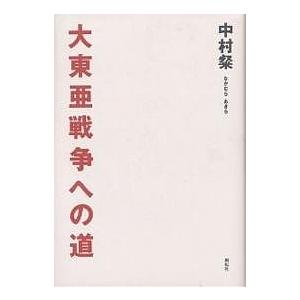shijitu「史実を世界に発信」
【概説】「史実を世界に発信する会」 茂木弘道
中村 粲
その7 第二章 第四節 日清戦争:日清戦争と朝鮮

日清戦争のさなか、
1.清暦を廃し、李氏朝鮮開始年号を用いる。
2.貴賤門閥にかかわらず、人材を登用する。
3.人身売買の禁止。
4.平民にも軍国機務処に意見提出を許し、
5.司法権限によらぬ逮捕や刑罰の禁止。
6.拷問の禁止。 などなど、前近代性からの脱却を目指すものです。
ところが、この改革は改革派と国王・
振り返ってみればこの時こそ、
この新旧抗争をロシアは利用しました。
この「乙未の変」後、
親日派は虐殺されたり、日本へ亡命したりしました。斯くして、
日本はロシアとの交渉によって異常事態に対処するすることになり
ロシアは、韓国から撤退すると、
・その7,第2章4節 日本語原文:http://hassin.org/01/wp-
・ 〃 第2章4節 英訳文: https://www.sdh-fact.com/
令和4年12月1日
「史実を世界に発信する会」会長 茂木弘道
協力者代表:神奈川大学教授 小山和伸
*拡散大歓迎
THE ROAD TO THE GREATER EAST ASIAN WAR
Nakamura Akira, Dokkyo University Professor Emeritus
(English Translation: Society for the Dissemination of Historical Fact)
Part 7: Chapter 2: The 1st Sino-Japanese War-4
Korean domestic reforms proposed by Japan (the Gabo Reforms) were undertaken during the 1st Sino-Japanese War. The 208 reforms decided upon represented Korea’s first attempt at modernization; they included the following:
1. The Chinese calendar was replaced with a Korean calendar that begins in 1392, the year the Joseon dynasty was established
2. Hiring was to be done without regard to social class or lineage
3. Slave trade was banned
4. Common people could now express their opinions to the Deliberative Council; those with significant talent could be hired as government officials
5. Arrest and punishment unsupported by judicial authority were prohibited
6. Torture was prohibited
However, internecine strife in Korea presented a serious obstacle to the reforms. The conflict between the progressives and the conservatives continued to worsen, and ultimately became one between the pro-Japanese and pro-Russian factions.
On June 4 Japan’s Diet passed a resolution concerning Korea policy. Japan would, in the future, avoid interfering in Korean affairs, and allow Korea to achieve autonomy on its own. This would be the best opportunity for Korea to realize true independence and become a modern nation. However,
this policy change was interpreted by Queen Min as a manifestation of Japan’s fear of Russia. She began to attempt to rein Japan in through pro-Russian policies, and to acquire more strength for her faction.
Russia took full advantage of the discord between the progressives and conservatives. Russian Ambassador Weber made overtures to Queen Min and her followers, boasting about Russia’s might.
“Bury the queen!” became the war cry not only of Japanese idealists in Korea, but also of Korean politicians who opposed the queen’s faction. On October 7, 1895 the Korean government announced that the Military Training Division would be disbanded and its weapons confiscated. Early the next morning, the Military Training Division and Japanese and Korean partisans, under orders from Japanese Ambassador Miura Gorō, who had pledged to do away with Queen Min, entered the palace with the Daewongun. During this incident Queen Ming was killed.
Afterwards Kim Hong-jip formed a new pro-Japanese cabinet, and once again began implementing reforms. But some of them, e.g., the Short Hair Act, alienated the Korean people, and in 1896 uprisings cropped up all over the nation. Russian Ambassador Weber took advantage of that situation by bringing 100 Russian sailors into Korea supposedly to protect the Russian legation. Conspiring with pro-Russian Koreans, Weber kidnapped the king on February 11 and escorted him to the Russian legation. The king’s sojourn there is referred to as Gojong’s internal exile. It meant that Korean policy was drafted at the Russian legation, an extraordinary circumstance.
But high-pressure Russian diplomatic tactics backfired when they incurred the enmity of the Korean people. On March 23, 1898, Russian military and financial advisors departed from Korea. The Russians shifted their focus to a new target – a southward advance to Manchuria. On March 27, only four days after its military and financial advisers left Korea, Russia leased Port Arthur and Dalian from China.
URL: https://www.sdh-fact.com/
PDF: https://www.sdh-fact.com/CL/
MOTEKI Hiromichi, Chairman
Society for the Dissemination of Historical Fact
Phone: 03-3519-4366
Fax: 03-3519-4367
Email moteki@sdh-fact.com
Note: Japanese names are rendered surname first in accordance with Japanese custom.
